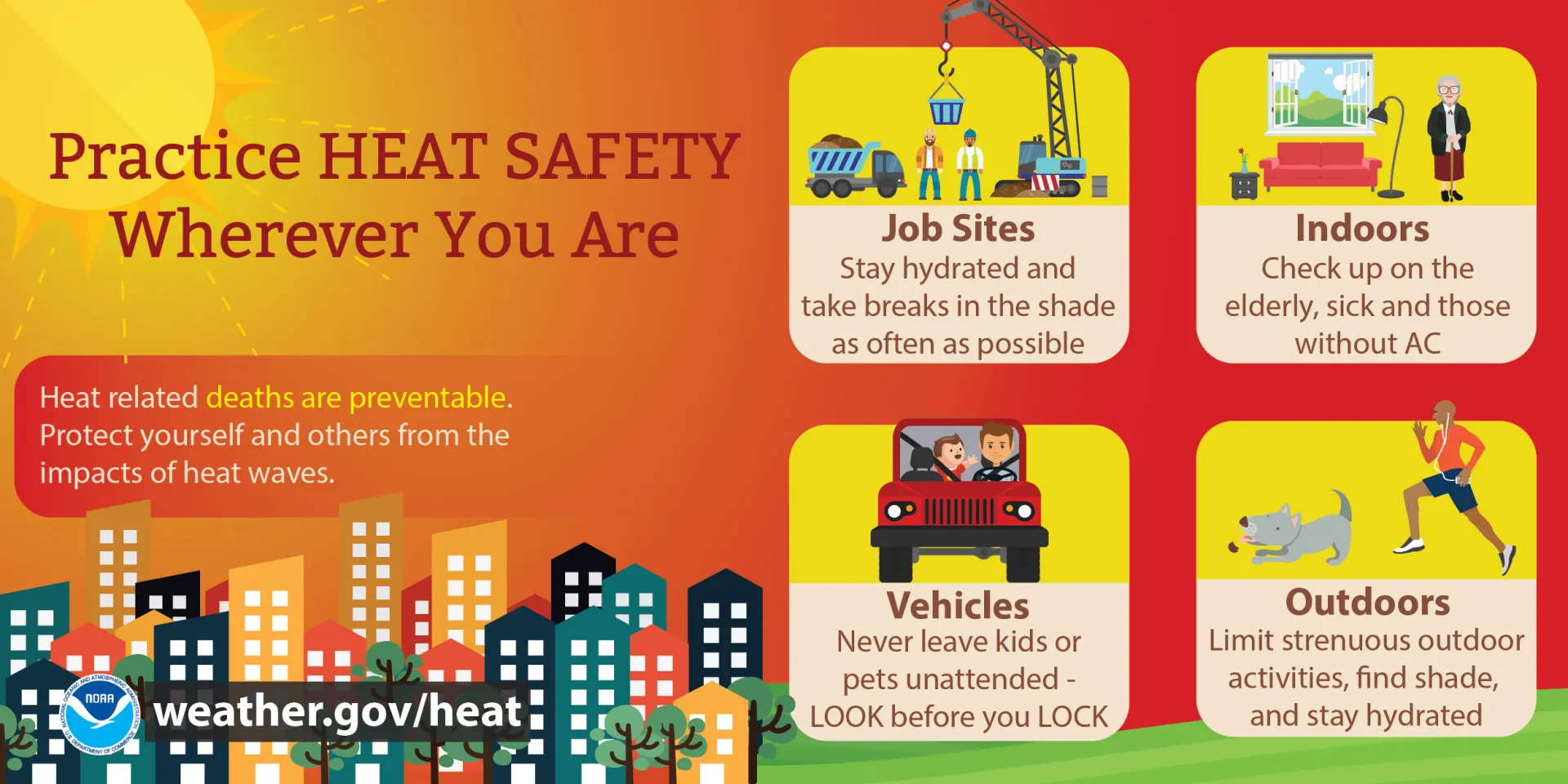Staying Healthy in the Heat
Healthy in the Heat
Summer is on the way and experts anticipate that we will continue to see rising temperatures and more extreme heat events. The National Oceanic and Atmospheric Administration (NOAA) reports that 2024 was the hottest year on record and that this year is likely to be even hotter. While natural disasters such as tornadoes and hurricanes may sound more dangerous than a heatwave, more Americans die each year due to heat than from any other weather events.
What is “Heat-related Illness”?
The most severe health impact of heat is heatstroke, but high temperatures can also cause heart attacks, strokes, and kidney failure. Heat exhaustion, which occurs when your body loses fluids and electrolytes, often precedes heatstroke with symptoms such as heavy sweating, headache, dizziness, nausea, muscle cramps, weakness and cool, clammy skin.
Heatstroke occurs when the body can no longer control its temperature: the body's temperature rises rapidly, the sweating mechanism fails, and the body is unable to cool down. When heat stroke occurs, the body temperature can rise to 106°F or higher within 10 to 15 minutes. Heat stroke can cause permanent disability or death if the person does not receive emergency treatment.
Who does it affect?
Outdoor workers are especially vulnerable to heat. California was the first state to enact legislation that protects workers in extreme heat, and last year added additional protections for indoor workplaces. Other populations that are at high risk include children, the elderly, people with preexisting medical conditions, and people without adequate shelter.

What you can do
One big reason people experience heat related illness is because they do not recognize the risks and fail to take the necessary precautions. Be sure that you and your family stay safe this summer by taking these steps to prevent heat related illness.
-Stay cool outside: as the temperature rises, seek shade and avoid direct sun exposure. Do necessary outdoor activities at dawn or dusk when the temperature is lower.
-Stay cool inside: Use AC units as necessary if they are available. Open windows at night to allow cooler air in. Only run fans if the indoor temperature is below 90 degrees to avoid circulating hot air.
-Stay hydrated: prioritize water and electrolyte beverages, but avoid drinks with sugar, alcohol or caffeine
-Be aware of your risk: talk to a doctor to know if any medications you take or conditions you have put you at greater risk of dehydration or overheating. Develop a plan with your doctor.
